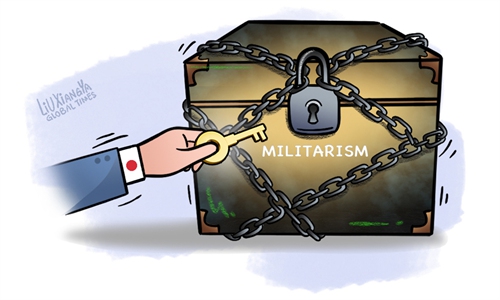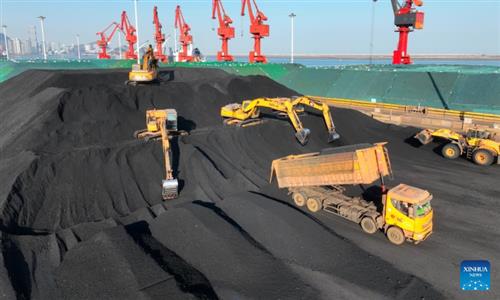
Illustration: Tang Tengfei/Global Times
As a further sign of instability in Australia's lithium market, the country's biggest lithium mine has become the latest to feel the pain of global overcapacity. Amid economic uncertainty, multi-dimensional cooperation between China and Australia is necessary to help stabilize the market.Greenbushes, Australia's largest hard rock lithium mine, is cutting production during a market downturn, the Australian Broadcasting Corp reported on Monday - the latest piece of negative news for the critical minerals sector in Australia, with an analyst saying smaller producers may have been in deep trouble.
The world is shifting rapidly to clean energy. Strategic importance is attached to so-called critical minerals - the metals and other raw materials needed to build electric cars, solar panels and other technologies that cut carbon emissions. Lithium is a key element in the energy transition and has been deemed a strategic resource by some Western political elites.
After Washington realized the strategic importance of clean energy, it began to position critical minerals as a new battlefield for its geopolitical game, trying to strengthen its influence there.
Some US officials and media outlets have maliciously hyped the "China threat," claiming that China dominates global critical mineral supply chains. Their real purpose is to exclude China from the global industry chain, pushing forward "decoupling" from China.
To counter China's influence, the US and its allies have adopted a two-pronged strategy - seeking to suppress Chinese enterprises while bolstering cooperation among themselves to facilitate increased mining efforts. The US aims to expand its market share by encouraging companies to invest in new lithium mining projects. However, excessive investment has brought a tricky problem: overcapacity.
Australia is likely to become the biggest victim of the lithium glut, because the country is reportedly the world's largest producer of spodumene - the base material for lithium hydroxide and lithium carbonate - and it has the second-largest lithium ore reserves globally.
As reported by Bloomberg, spodumene prices have extended a rout after an 80 percent slump last year. A collapse in prices has forced Australia's largest hard rock lithium mine to cut production. This is obviously a dangerous signal, since smaller producers may face a more serious situation.
Amid volatility in spodumene prices, all relevant parties should make joint efforts to strengthen cooperation, and to oppose "decoupling" and supply chain disruptions.
Chinese Ambassador to Australia Xiao Qian on January 17 said that 2023 was a year of "exchange, dialogue and improvement" for China-Australia relations, in which dialogue and cooperation across the board resumed and practical cooperation yielded fruitful results. China-Australia trade ties are warming up. It is expected to offer new opportunities for the two countries to enhance cooperation in the field of minerals.
Australia, the world's leading spodumene exporter, ships about 98 percent of the material to China, while about 55 percent of China's lithium raw material comes from Australia, media reported. A US-advocated broad "decoupling" isn't conducive to stabilizing the lithium supply chain between China and Australia. The two countries enjoy strong complementarity, and their cooperation is crucial to the stability of the global lithium industry chain.
Given its limited influence on the lithium pricing mechanism, China is also exposed to the risk of volatile lithium prices. Now, the global lithium market is caught in a vicious cycle of oversupply, making it a "buyer's market" rather than a "seller's market." As a result, China is bound to gain more pricing power. Some Western politicians are likely to take every chance to smear China, trying to drive a wedge between Chinese buyers and Australian miners.
Hopefully the Australian side will not be influenced by politicians in Washington, politicize economic issues and fall into the "decoupling from China" trap. Cooperation is the only way to stabilize the market.
The US-advocated "decoupling" and Washington's geopolitical games have brought enormous challenges to the global lithium industry chain. The complex challenges that face the supply chain require cooperation to overcome.
The author is a reporter with the Global Times. bizopinion@globaltimes.com.cn



